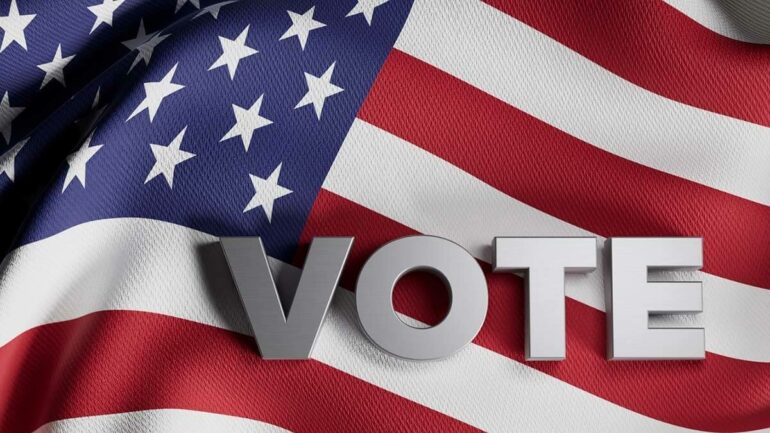In the past two decades, many state governments have enacted voter identification requirements for constituents voting in their state, requiring a photo ID or other significant proof to access a ballot. These laws were intended to prevent voter fraud and increase election security, but they also sparked national debate over whether they disenfranchised disadvantaged groups such as people living in poverty or people of color, who may not have a valid ID nor be able to obtain one.
Many argued that implementing the ID requirements gave Republicans the electoral advantage while harming Democrats, whose supporters were more likely to be affected by the laws. Up until now, the extent to which these laws provided electoral benefits for Republican candidates and/or disadvantages for Democratic ones had not been considered.
In a study recently published in the Proceedings of the National Academy of Sciences, Jeffrey Harden, the Andrew J. McKenna Family Associate Professor in the Department of Political Science and concurrent associate professor in the Department of Applied and Computational Mathematics and Statistics, and Alejandra Campos, a third-year graduate student in the political science doctorate program, both at the University of Notre Dame, found that voter ID requirements motivated supporters of both parties equally to comply and participate, but had little overall effect on the actual outcomes of the elections.
“We addressed a very simple question of whether or not these laws actually have the sort of electoral effects that people seem to think they do,” Harden said. “It was surprising to us to see that no one had really addressed that question yet.”
The two researchers examined the effect of voter ID laws on the electoral results for significant political races at the state level (state legislatures and governorships) and federal level (U.S. Congress and president) from 2003 to 2020. The framework of the study was to find out whether a voter ID requirement affected the vote share advantage of Republican or Democratic candidates in these races. The assumption, Harden explained, is that because Democratic voters tend to be the ones who are more impacted by voter ID requirements, it is in the Democratic Party’s interest to push back against these laws and in the Republican Party’s interest to advocate for them.
“This suggests that one party’s candidates would benefit more, and one party’s candidates would be penalized more, by these laws,” Harden theorized. “But that’s not really what’s going on here—the long-term implications of voter ID are more nuanced than that.”
Rather, the researchers speculated, voter ID laws had a countermobilization effect by creating a complex series of events, happening over the course of the campaign, that resulted in supporters of both parties getting motivated and mobilized, which ultimately diminished the laws’ anticipated effects on the actual election results.
“The parties had to take additional steps to counteract these laws,” Campos explained. “The Democratic Party, for example, mobilized their constituents to meet the ID requirements so the laws would not impact their electoral fortunes.”
Other implications include the idea that ID requirements frustrated Democrats and enthused Republicans—motivating both groups’ supporters to vote. In addition, the researchers wrote, voters may have become accustomed to adhering to the laws, thus softening their controversial stigma in the public’s opinion and eventually reducing their effects.
“Any impact these laws exert on voter access occurs concurrently with their effects on other elements of the electoral process,” the researchers pointed out. “What we find out, in the end, is that the results get washed out to the point where these voter ID laws don’t have much of an impact on the actual electoral outcomes.”
With existing research pointing to the fact that voter ID laws don’t necessarily impact voter fraud or voter turnout, and Harden’s and Campos’ research indicating that they don’t have much of an effect on election results, Harden suggested we ask ourselves: “How difficult should it be in a democratic society for a person to vote?”
“We think this should be a part of the discussion,” both researchers said. “Future election policy may benefit from a shift in the debate.” Instead of focusing on which is more important—voting security or access—lawmakers should consider what is the minimum amount of voter responsibility required to vote, the researchers said, rather than setting up barriers to voting not supported by evidence.
“We need to ask ourselves: Why are we doing this?” Campos noted. “We need to think seriously about the consequences of these laws and whether or not there’s any benefit to them at all.”
Harden noted the importance of studying democratic institutions and the way in which democracy can ebb and flow within a country—and how this practice fits in ideally with the mission of Notre Dame.
“What we’re talking about here are reforms that make a fundamentally democratic practice (i.e., voting) more or less difficult for people,” Harden said. “Being at a university committed to truth and the common good, we need to understand if this significant reform is doing what people expect it to when they enact that reform.”
More information:
Jeffrey J. Harden et al, Who benefits from voter identification laws?, Proceedings of the National Academy of Sciences (2023). DOI: 10.1073/pnas.2217323120
Provided by
University of Notre Dame
Citation:
Voter ID laws mobilize voters in both parties, rather than sway election results: Study (2023, February 7)



